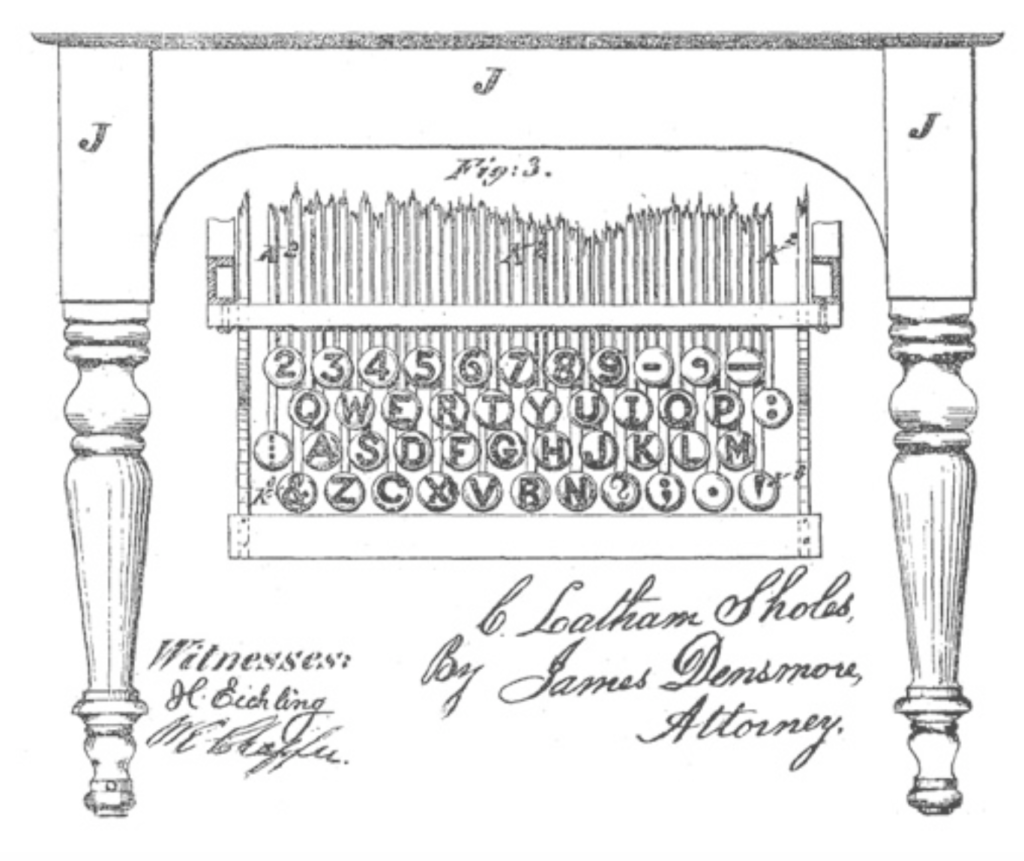Keyboards, Codes and the Search for Optimality
For some of our readers, this may be old hat, but for others this article by Robert Dorit in the September-October 2009 (Volume 97, Number 5, Page: 376) issue of the American Scientist entitled "Keyboards, Codes and the Search for Optimality" available here revisits in a cogent manner the issue of optimality in biology and technology. Here are two illustrations from the article:
The QWERTY keyboard: Christopher Latham Sholes of Milwaukee, Wisconsin received a patent for this keyboard layout in 1878. With few changes it became the layout that is still standard on computer keyboards today. The QWERTY keyboard, as it is called (after the first six letters in the top row of letters), may not optimal, but people have significant resistance to switching to something new.

This circular diagram of RNA bases depicts the near-universal genetic code. It is read like a tree diagram, starting at the center, giving the three bases that code for each of the resulting amino acids. Starting with U, for instance, and choosing U again for the second of the three bases, either a U or C in the third position results in the amino acid phenylalanine. This redundancy helps to temper the effects of mutations. Much like the QWERTY keyboard, this genetic code, which evolved early in the history of life (and perhaps even prebiotically) may not be optimal, but it is good enough.
The article concludes:
"Neither our technology nor our biology can evade the hand of history. History underlies the configurations of the QWERTY and the AZERTY keyboards. Within the keyboards, vestiges of an even deeper history remain: The central row preserves traces of the original alphabetical arrangement that existed in the very first typesetting machines."
"History, too, accounts for the universality of the genetic code. And here again, even deeper traces of prebiotic evolution can be found: Certain base triplets show particular physical attraction for the amino acids they would eventually come to encode. Everything has a past, though it may sometimes be concealed. The power of the evolutionary perspective resides in its acknowledgment of the importance of that past."




